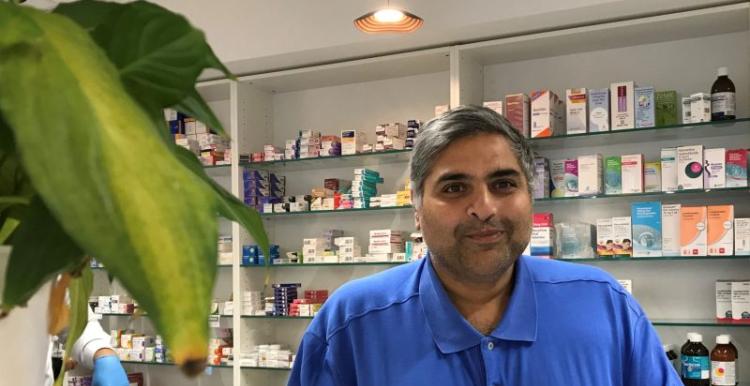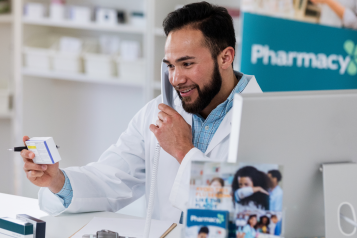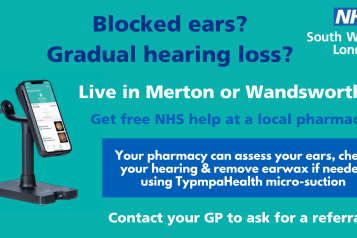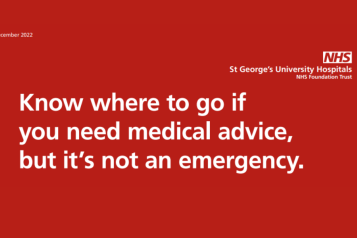Ten minutes with community pharmacist Mayank Patel

Mayank Patel and his brother Vijay own a chain of pharmacies across South West London, including Pearl Chemist in Tooting – where it all started. Passionate about local pharmacies Mayank explains why they really are the heart of our communities.
When did you decide to become a pharmacist?
My family used to own a little post office and there was a pharmacy across the road. From a very young age me and my brother used to help the owner. We used to fill shelves, not for money, to keep ourselves busy, so we learned about pharmacy. We both knew we wanted to be pharmacists.
Why are community pharmacies important?
Post offices, like my parents’, used to be the centre of the community. My mum would often spend an hour talking to someone who had come in for their pension, because they might not speak to anyone else all day. Now I believe the community pharmacy is that hub. People come here to ask your advice. You talk to them about … football, life, health, you ask how they are doing. You see what’s going on in their lives, you know the whole dynamic.
What training do you need?
It takes at least five years of study. There’s a four-year master’s degree then, one year as a trainee pharmacist. During that year you work in a pharmacy and learn about it hands-on. You need that practical element, how to talk to people and care for them – that’s maybe the biggest part.
Then what?
I started out as a locum, working in different branches, cutting my cloth, understanding the job. With my brother we bought our first pharmacy, Pearl in Tooting in 2001. We bought a second, then slowly purchased more units. The majority are in Wandsworth and Merton, we try to keep them close, so we know the communities we work in.
What’s a typical day for a community pharmacist?
It can be stressful; it can be challenging. We start the day by looking at what needs to be done, making a plan. There might be 30 patients wanting repeat prescriptions. We need to make sure the prescriptions have come in and check that every one is safe and correct.
We have queries on the phone from patients about their medication and side effects and we offer consultations for many minor conditions. Plus, we do around 70 deliveries to housebound patients from this pharmacy alone – we have to make sure those are ready to go, so patients can get them in a timely manner.
What else do pharmacist do – that we might not know about?
People think we only dispense medication, but we do so much more besides – our problem is we don’t shout it from the rooftops – but there are stop smoking services, vaccinations, new medicines advice, blood pressure checks, travel clinics. There are also new initiatives like earwax treatment – GPs can refer people to us saving them time.
Something we do which is really important is a discharge medicine service. When a patient goes home from hospital we will follow up and make sure everything is correct in terms of medication so they don’t relapse and end up back in hospital.
What’s the best thing about being a pharmacist?
It’s people, talking to people I love that and can do it all day long.
Find your local community pharmacy
Find opening times of your nearest community pharmacy on the NHS website.


